Growing Green with the Zodiac: Aquarius Season 2025
Toward an Ecological Astrology
Growing Green with Aquarius is the sixth in a series of 12 almanac posts in which I’m using the lens of traditional astrology—the ancient view that planets, people, and plants are all part of one coherent cosmic whole—as a way to think about our current ecological and environmental crisis. I hope these posts encourage us to pay more thoughtful attention to the green world, especially now that the new U.S. administration seems hellbent on steamrolling many of the environmental policies worked out over the past two dozen years. It’s no exaggeration to say that our lives—and the lives of our children and their children—depend on it.
Your subscription to Thyme, Place & Story includes several different monthly publications. This one isn’t your cuppa? Go here to select what you receive from me.
Aquarius Season: January 20-February 18
Guardian planet(s): Saturn (ancient) the planet of boundaries, limits, stability; Uranus (after 1781), the planet of creativity and eccentric, erratic, often electric change. Modern astrologers emphasize Uranus’ transforming ability in this sign, but it’s important to remember Saturn, which can imposing limits on Uranus’ eagerness to change. There is always a tension between these planets.
Aquarius symbol: the Water-Bearer, a figure signifying the free and open sharing of ideas, knowledge, and life-giving energy, contributing to wider understanding and the good of the community as a whole. In ancient Egypt, the constellation Aquarius was associated with the rainy season and the flooding of the Nile. More here.
Element: Air, associated with intellectual life, communication, freedom of thought and ideas. Modality: Fixed
Aquarius’ home in the Zodiac is the 11th House, the house of future possibilities, promise, hopes and aspirations. Also of friends, social networks, and community.
Aquarian folk (those who have a Sun, Moon, Rising Sign, or a cluster of planets in Aquarius, and/or a strong Uranus or 11th House or planets in air signs Gemini or Libra) are intellectual, innovative, creative, forward-thinking, and humanitarian—also highly individualistic nonconformists, often contradictory and unpredictable. On a personal level, Uranus urges us toward individuation, to becoming who we potentially are. It is a gamechanger, a rule-breaker, the Lord of Lightning Bolt. But Saturn still makes the rules and referees the game, so look for plenty of tension, both within the Aquarian individual and in their community work. Nobody ever said life would be easy-breezy for Aquarians.
When it comes to green, Aquarian folk are likely to be innovative gardeners, farmers, and conservationists. They look for creative ways to do things; for unconventional practices and regenerative, earth-friendly technologies; and for new ways to work with others. Aquarians’ affinity for networking and collaborating makes them natural advocates for community gardening projects, cooperative farming, and urban green spaces. Their strong communication skills make them excellent writers and teachers.
Aquarius Season 2025 opens a rare window for change in our individual and collective lives. Aquarian energy is creative, intellectual, innovative, and inventive, pushing us to examine new ideas, try out different strategies, and challenge a paradigm or two. Especially favored are humanitarian practices that benefit the larger community. But Saturn will be there too, insisting on limits, policing boundaries, and reminding us that resources must be used wisely. This is a good time for all of us to educate ourselves on topics that are important in our personal search for individuation and to cultivate communities of thought where we can share our interests with likeminded people.
Adding complexity to this 2025 Aquarius season is the dwarf planet Pluto. Not only will the Sun spend the upcoming month in Aquarius, but Pluto—symbolic of beginnings and endings, of deep transformation, rebirth, and the unending cycle of destruction and renewal—will be there too. A slow-moving planet, Pluto won’t exit Aquarius until 2044, so whatever begins now will play itself out across the next two decades. Notable upheavals that have occurred during Pluto transits of Aquarius: the American, French, Haitian Revolutions and the beginning of the Industrial Revolution. Buckle up: we’re in for significant changes—ecological, economic, political, social—that will affect our lives for a very long time.
Three Aquarian Green Climate Activists
With both Uranus and Neptune in an 11th-House Aquarius and Sun, Moon, and Mercury in Capricorn, Swedish climate activist Greta Thunberg embodies Aquarian traits through her visionary leadership, grassroots mobilization, and focus on global interconnectedness.
David Attenborough (Ascendant and Jupiter in Aquarius) is best known for writing and presenting the BBC’s nine nature documentary films and his recent Planet Earth series, a comprehensive survey of our richly diverse animal and plant life.
Respected for her work in forest and community conservation, Marina Silva (Sun, Mercury, Venus, and Ascendant in Aquarius) is a Brazilian environmentalist and spokesperson for the Sustainability Party in Brazil. She was born into a rubber-tapping community in the Amazon rainforest. She began her career as a pioneer of “empates,” peaceful protests by rubber tappers against deforestation and livelihood loss that led to the creation of Brazil’s first extractive reserve.
Aquarius Season in the Green World
Here are some sustainable, future-focused green projects that are powered by Aquarius’ energies for change and renewal. Some of these are familiar and shovel-ready, others require more startup cost, more energy, and more time/attention. But all have a place in regenerative gardening.
No-till gardening, cover crops, and green manure: preserving soil structure and reducing carbon emissions.
Composting: recycling organic matter to enrich the soil and reduce waste.
Biochar: incorporating as soil amendment and carbon storage a charcoal-like substance made by burning organic material.
Keyhole gardening: planting in a structure suited to arid conditions.
Permaculture: emphasizing long-term ecosystem health and resource efficiency.
Smart irrigation systems: using technology to conserve water.
Hydroponics: growing plants using a water-based nutrient solution rather than soil.
Aquaponics: co-raising fish, crayfish, or prawns with hydroponically-grown plants.
Gardening by the Sun in Aquarius Season
While lower temperatures and inclement weather prompt many Northern gardeners to take the winter off, others may take their gardens indoors—or into the greenhouse. If you’re one of these, or if you garden in a frost-free zone, here’s a checklist. Choose the activity that fits your growing climate.
Plant seeds hardy vegetables and root crops (garden peas, radishes, mustard, spinach, turnips). Plant cabbage, broccoli, lettuce, and Swiss chard seeds in cold frames.
Plant roses, flowering shrubs, vines, trees.
Divide and transplant perennials (daylilies, hostas, irises). Dutch bulbs (tulips, hyacinths, and daffodils) are still likely to flower this spring if planted now. Plant lilies (except Madonna).
Prune winter-damaged limbs, clean up debris.
Greenhouse gardeners, consider your latitude. Once you stasrt getting 10 hours of light a day, you can plant lettuces, cabbage, broccoli, and Swiss chard. If you’re thinking of adding greenhouse gardening to your bag of green tricks, you might want to read along with Substacker Bailey Van Tassel, who is just about to embark on her very own greenhouse adventure.
Gardening by the Moon in Aquarius Season
Traditionally, it is said that the increasing light of a waxing moon encourages leaf growth and its increasing gravitational strength raises soil moisture and boosts plant sap production, while the decreasing light and strength of a waning moon is believed to encourage root growth. Each of the Moon’s phases (waxing, waning periods) lasts about a week.
Gardening by the Moon’s phases in Aquarius Season:
Waning Gibbous (Jan. 20) to Last Quarter (Jan. 22). Plant perennials, shrubs, trees and cool-season root crops (climate permitting).
Waning Crescent (Jan. 23) to New Moon in Capricorn (Jan. 29). Avoid planting. Harvest and store crops, fertilize, weed. On the New Moon, put work aside, reflect on your intentions for the coming lunar cycle, especially those that have to do with goal-setting, work plans, and promises you’re tempted to make to yourself about the new year ahead.
Waxing Crescent (Jan. 30) to First Quarter (Feb. 5). Indoors or out (local climate permitting,) plant above ground annuals (especially leafy plants) and herbs.
Waxing Gibbous (Feb.6) to Full Moon in Cancer/Leo (Feb. 12). Plant above ground annuals (especially fruit plants), grains, flowers. On the Full Moon, celebrate, gather medicinal herbs, reflect on the cycles of your life and your emotional connections with the people you’ve known.
Waning Gibbous (Feb. 13) to Last Quarter (Feb. 20). Plant below ground/root plants, perennials, trees, shrubs.
Gardening by the Moon’s signs. As the Moon changes phases, it also moves from one zodiac sign to another. Traditionally, each sign is suited to a different set of tasks, suggested by the planet that rules the sign. If you’d like to learn about gardening by the Moon’s signs, you’ll find a helpful calendar and chart here. Before you tackle the calendar, scroll down to the chart, where you’ll see the phases displayed in the wide center column and the signs on the left. I’ve set the Astro-seek link for the beginning of Aquarius in January; you can reset it (top left) for February. And here’s more, when you have time:
Substacker Karen Falcone Krieger of Wild Working Gardens is a real-life lunar gardener who gives us weekly reports on the practice, and on regenerative gardening writ large.
I am indebted to Karin for her recent mention of Sown in the Stars, by Sarah L. Hall—interviews with two dozen Kentucky farmers who follow the phases and signs of the moon in their farming and gardening. An unusual study that uses oral histories to bridge this ancient agriculture practice and contemporary farming life.
From Sown in the Stars, I learned about Phil Case, who hosts a popular Facebook site, with regular updates to the lunar planting calendar and contributions from followers.
For Indoor Gardeners
For Aquarius, of course, it’s air plants (Tillandsia spp.). Truly eccentric Uranians, these plants are epiphytic: they skip the soil and grow directly on trees, rocks, or other surfaces. They absorb nutrients and moisture from the air through trichomes, specialized structures on their leaves that capture water and dust particles. This adaptation allows them to thrive in widely different environments, from rainforests to deserts. Their root systems are used only for anchoring, not nutrient absorption, making them uniquely self-sufficient and . . . well, airy. As a bonus, they help to filter the air and absorb airborne toxins. For care tips, check out this page.
Some Aquarius Reading
It may seem a little paradoxical to think of airy, eccentric Aquarius as a fixed sign. The air is full of . . . well, puffs of wind, for one thing. Shape-shifting clouds. And lightning and dust and . . .
Yes, all true. Air is in constant flux. But if there’s one thing we absolutely must have, it is AIR. Agreed? Animals, plants, fungi, and multitudinous microbes require atmospheric oxygen, while plants and other photosynthetic organisms require atmospheric carbon dioxide. It’s a fixed necessity. The atmosphere’s composition and temperature have remained relatively stable—until recently. human activities since the Industrial Revolution (there’s Pluto in Aquarius again) have sharply raised CO₂ levels, producing a current rate of warming the planet hasn’t seen since the disappearance of the dinosaurs, 66 million years ago. With this in mind, here’s some Aquarian reading. Four books, each focusing on our atmosphere from a different angle, with publishers’ descriptions.
The Atmosphere: A Very Short Introduction, by Paul Palmer. A thorough overview of key atmospheric science concepts, describing different layers in the atmosphere, showing how it interacts with land, ocean, and ice; and looking at movement in the atmosphere.
Air-borne: The Hidden History of the Life We Breathe, by Carl Zimmer (February 25). The fascinating and little-known story of our atmosphere, told by a consummate storyteller. The air we breathe is absolutely essential to life on earth, and yet most of us pay it little attention. Award-winning science writer Carl Zimmer gives us a comprehensive but highly accessible look at mankind’s millennia-long attempts to understand the invisible envelope that surrounds our planet.
Choked: Life and Breath in the Age of Air Pollution, by Beth Gardiner. In the United States, air is far cleaner than it once was. But progress has failed to keep up with the science, which tells us that even today’s lower pollution levels are doing real damage. Nothing is as elemental, as essential to human life, as the air we breathe. Yet around the world, in rich countries and poor, it is quietly poisoning us.
Into the Clear Blue Sky: The Path to Restoring Our Atmosphere. In this 2024 book, atmospheric scientist Rob Jackson emphasizes the importance of restoring our planet’s atmosphere to pre-industrial levels and highlighting innovative efforts to remove greenhouse gases, particularly focusing on methane's significant impact. Jackson introduces us to the brilliant leaders and innovators behind some of the boldest and game-changing climate solutions.
Aquarius’ Medicinal Herbs
In the ancients’ view of a unified cosmos, the archetypal qualities of each planet were believed to be embodied in particular plants, which were understood to affect those parts of the human body most closely associated with that particular planet.
Saturn, the ancient ruler of Aquarius, was linked to long-term health; to aging and degeneration; and to the durability of bones, joints, and connective tissues. Uranus, the modern ruler, is said to govern the brain, nervous system, and parathyroid gland. It's also associated with the endocrine system and electrolytes.
For herbs long associated with Saturn, see the Capricorn post. Here are five major herbs associated with Aquarius.
Lemon Balm (Melissa officinalis). Calms the nervous system, relieves anxiety, and promotes focus. Three of its important compounds: rosmarinic acid: A potent antioxidant with anti-inflammatory and neuroprotective properties; terpenes citronellal and geranial that contribute to lemon balm’s calming and mood-enhancing effects; and eugenol, known for its mild analgesic and antiseptic properties. As an herb for mental balance and emotional upliftment, lemon balm aligns with Aquarius’s intellectual and visionary nature.
Valerian (Valeriana officinalis). Sedative and anxiolytic; supports sleep and relaxation. Research has identified two important compounds that do the job: valerenic acid, which interacts with the GABA (gamma-aminobutyric acid) system in the brain, promoting relaxation and reducing anxiety and valepotriates, biologically active compounds thought to contribute to valerian’s sedative and antispasmodic effects. Together, these help balance the overactive minds often associated with Aquarian energy, allowing for deeper rest and rejuvenation.
Elecampane (Inula helenium). Respiratory tonic, supports lung health, and acts as an expectorant. Its use in treating the lungs ties into Aquarius's association with air and the circulatory systems. Recent clinical and lab research confirms this use, attributing it to elecampane’s lactones, alantolactone and isoalantolactone, which have been found to reduce inflammation in human respiratory cells. For an herbalist’s hands-in-the-dirt experience with this herb, read Substacker Leenie Hobbes’ beautifully illustrated post, Elecampane & Lung Health.
Ginkgo (Ginkgo biloba). I include this herb here because it is often mentioned as an Aquarian herb and is currently marketed to enhance memory and support cognitive function. Although there is some suggestion that gingko might reduce vascular cognitive impairment, research has not supported these claims.
Skullcap (Scutellaria lateriflora). Nervous system support, calms stress, and promotes focus. Studies show three bioactive compounds: baicalin, a flavonoid with antioxidant, anti-inflammatory, and anxiolytic properties; scutellarin, a flavonoid that reduces oxidative stress and promotes relaxation; and wogonin, known for its neuroprotective and anxiety-reducing effects. These help soothe the Aquarian tendency toward mental overactivity. If you want to experiment with this herb, take a moment to read Substacker Jonathan Hadas Edwards’ Nerve Balm: A Recipe, which includes skullcap, milky oatseed, and bai he, a lily long used in traditional Chinese medicine.
That’s it for Aquarius season, friends. You’ll hear from me again on Monday, February 3 with the February edition of All About Thyme. And I’ll also be introducing the next book in our Guerrilla Readers series, Jesus and John Wayne, by Kristin Du Mez.
Supporters, your Aquarius workbook is coming in a separate email. It includes some considerations of the tarot’s Star (Aquarius) card, project prompts, and (of course) a trip to the kitchen.






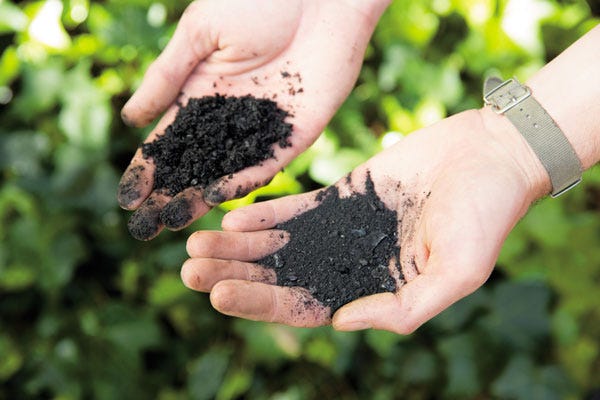

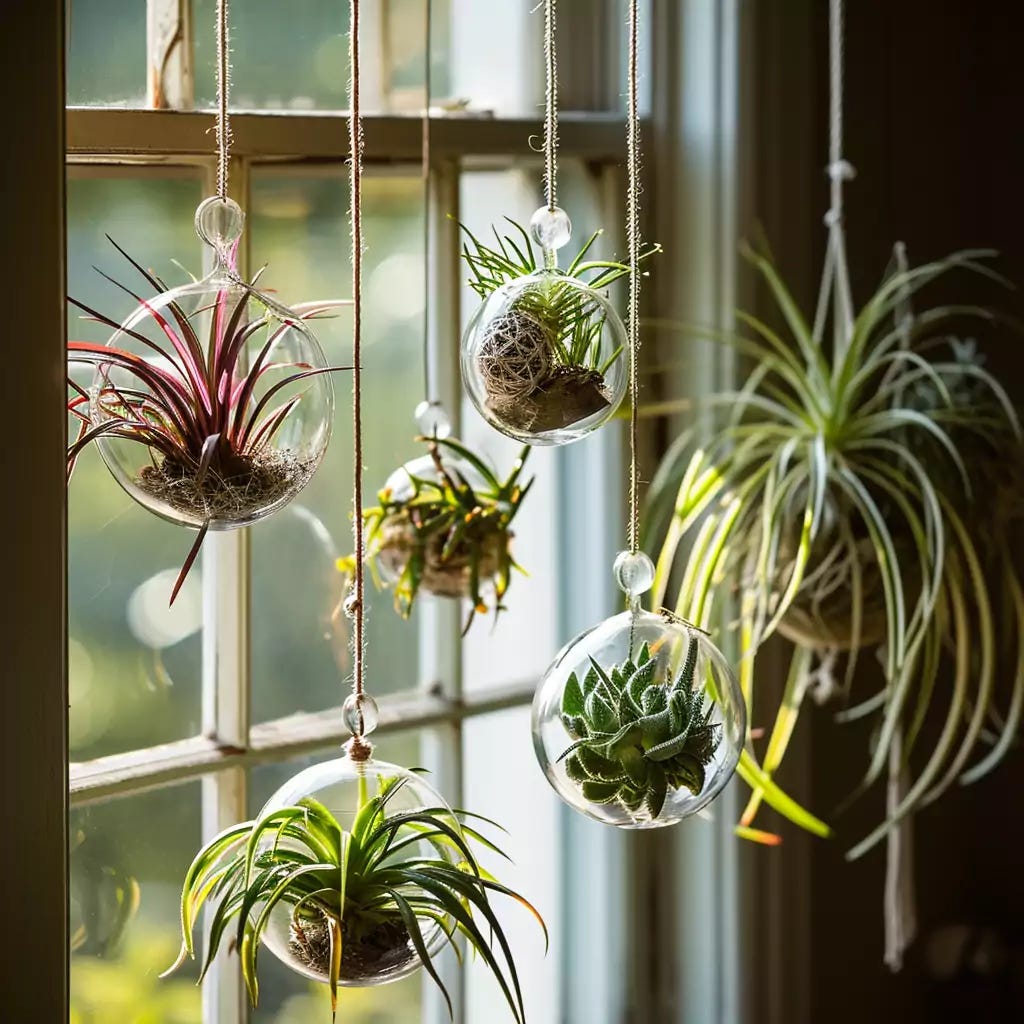

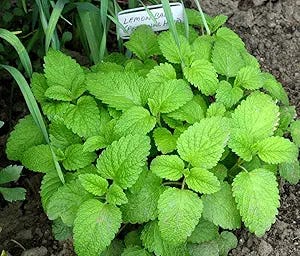
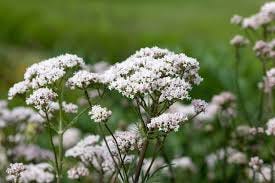
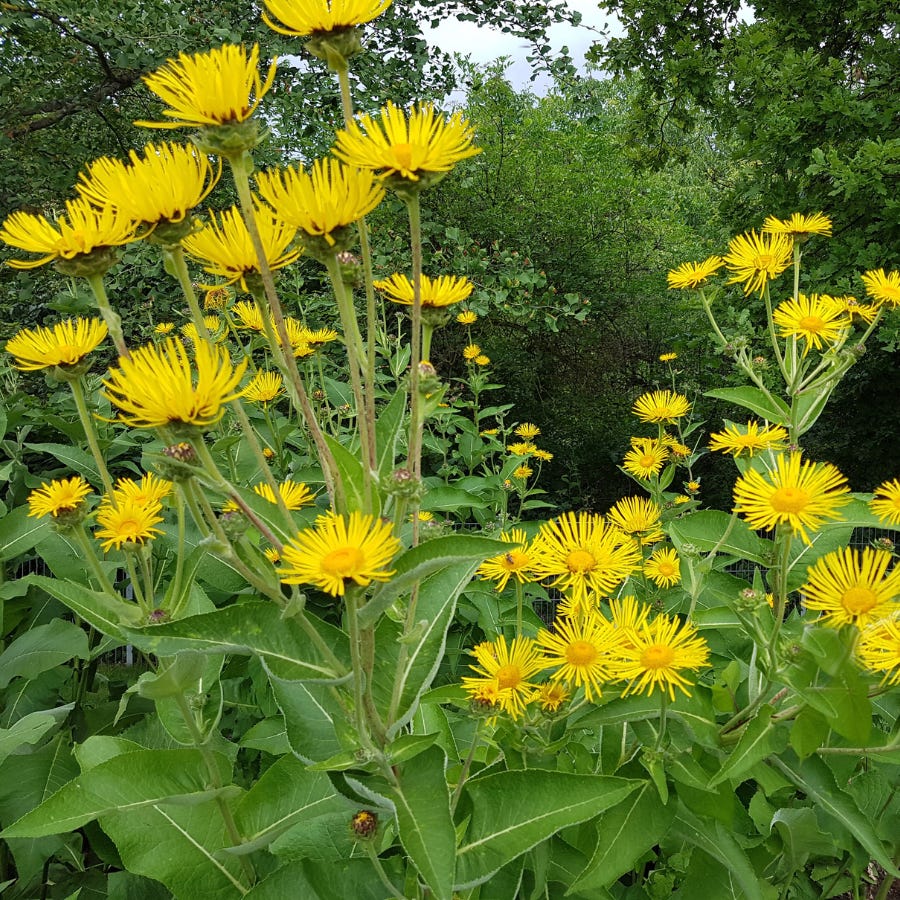
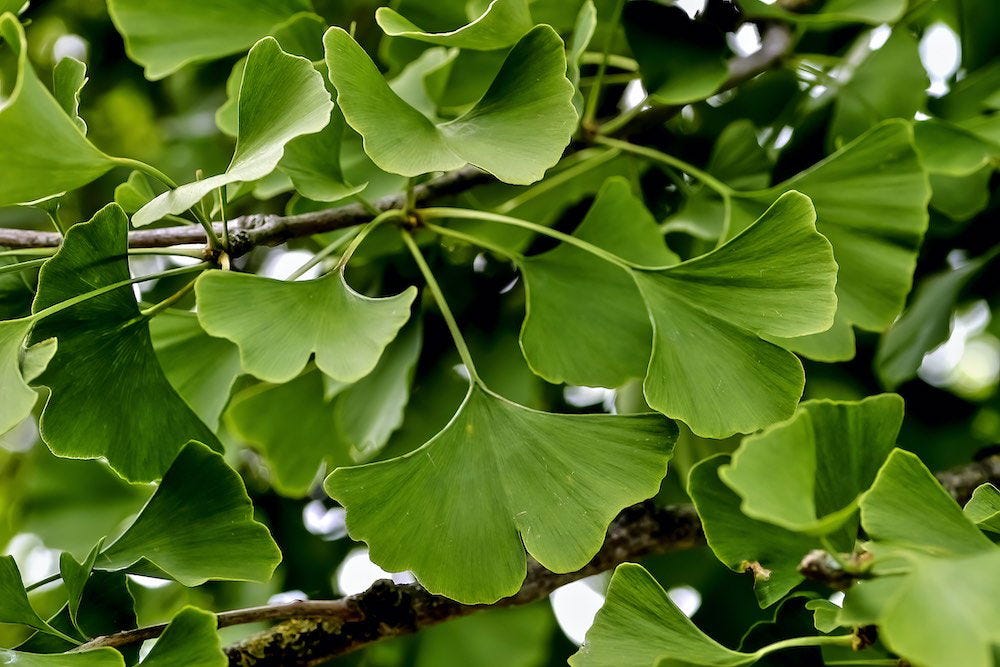
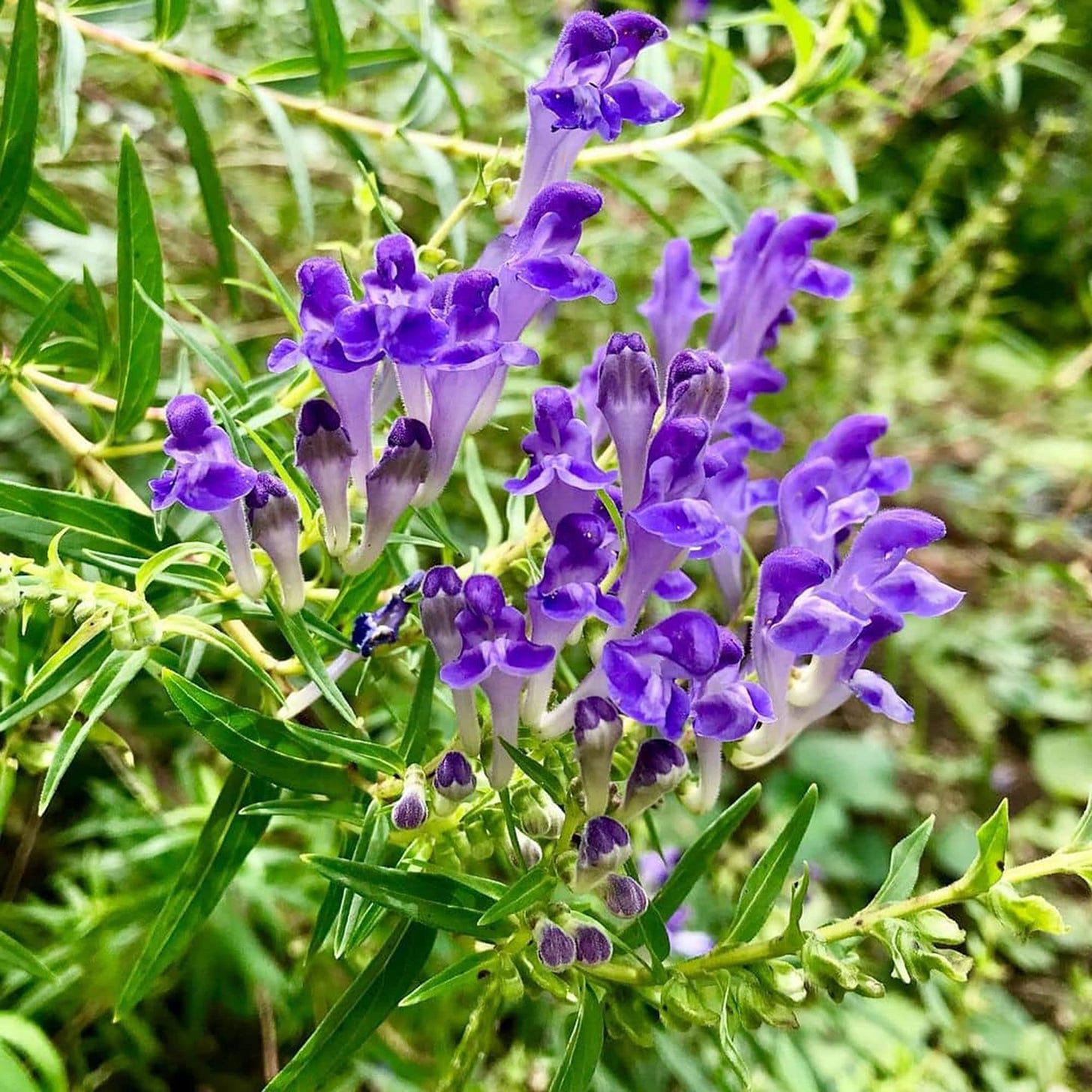

Susan, I always enjoy reading about the signs, and Aquarius sounds so settled and positive. Good juju for difficult times. Most especially, I like to hear about the herbs that coincide with the sign. I am a long-time friend of both Valerian and Skullcap. Because my husband practiced acupuncture, back in the day, we had an herbal pharmacy in our office. During a stressful period of time in my younger life, I took the combo of Valerian and Skullcap for sleep. It did the trick. I enjoyed finding out that those herbs are associated with Aquarius.
It's very interesting. As I read these posts, I noticed that many of my favorite herbs fit perfectly with my chart. I didn't pick them knowing that; I gravitated to them because they suit me. I wonder how many other readers are discovering the same thing.